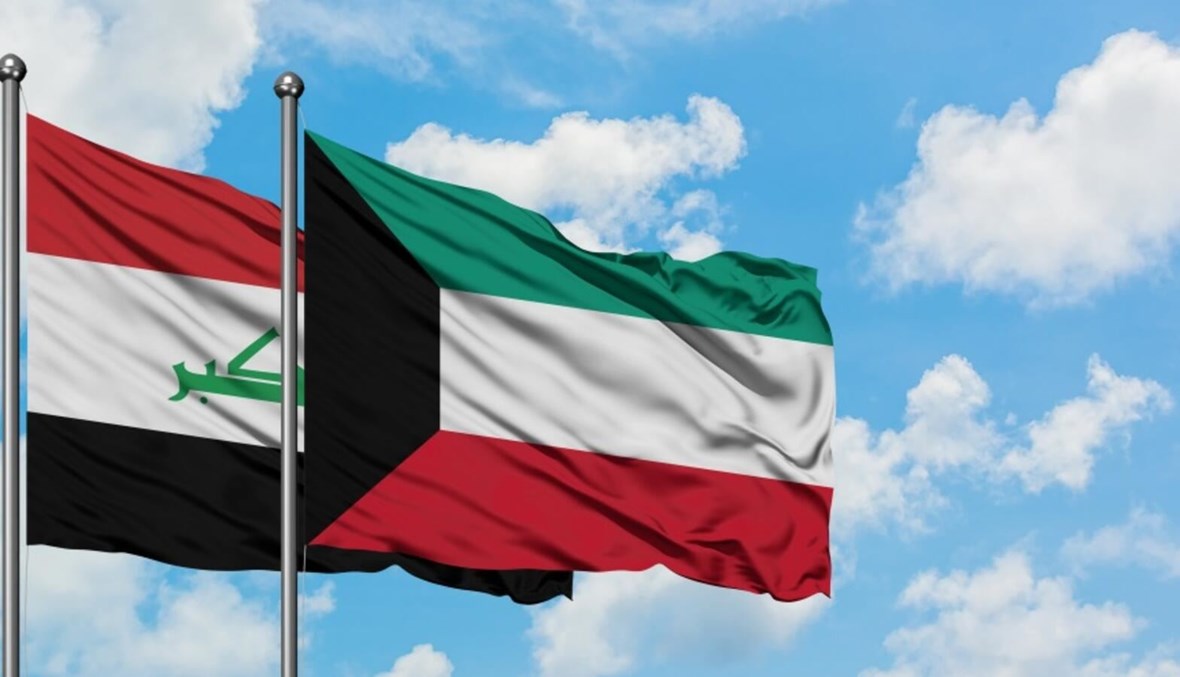An expert expects Kuwait to ask Iraq for 6 billion dollars in debt in the event of the cancellation of the “Khor Abdullah” agreement
An expert expects Kuwait to ask Iraq for 6 billion dollars in debt in the event of the cancellation of the “Khor Abdullah” agreement
2023-09-05 00:49
 Shafaq News/ The economist, Nabil Al-Marsoumi, predicted, on Tuesday, that Kuwait will ask Iraq for nearly 6 billion US dollars for Diwan, in the event that Baghdad cancels the “Khor Abdullah” agreement concluded with Kuwait.
Shafaq News/ The economist, Nabil Al-Marsoumi, predicted, on Tuesday, that Kuwait will ask Iraq for nearly 6 billion US dollars for Diwan, in the event that Baghdad cancels the “Khor Abdullah” agreement concluded with Kuwait.
Al-Marsoumi said in a post on social networking sites “Facebook”, that “after the Federal Supreme Court in Iraq ruled that the law ratifying the maritime navigation agreement in Khawr Abdullah with Kuwait was unconstitutional, claims appeared for some Kuwaiti deputies for Kuwaiti loans and interest on Iraq that have not yet been paid.” .
He added, “It is known that the origin of the Kuwaiti debts owed by Iraq was about 6 billion dollars to Kuwait, and this can be considered a debt from the documents submitted. As for the rest of the claims, they cannot be considered a debt. Because it is a mixture of several components, including:
1- Exporting oil for Iraq in the neutral zone between the two countries, as Saudi Arabia agreed with Kuwait to produce the equivalent of 1.3 million barrels of oil per day and market it for Iraq.
2- Paying the debts owed by Iraq to others or guaranteeing Iraq towards them.
3- Equipping Iraq with civilian means that serve the war effort, such as mechanisms, transporters, iron for military subjects, and barbed wire. And that these were specifically donations and support for the war effort.
4- Providing facilities in Kuwaiti ports and exemptions from transit fees and customs clearance. Therefore, the Iraqis do not see that all of this is loans because there is no evidence for that, as it is likely that they are gifts or aid, especially since the political motive was behind that aid. All of this brought Kuwait’s debt with interest to $22 billion, as estimated by Bank of America Merrill Lynch.
Al-Marsoumi continued by saying that “although Kuwait confirms that it has official documents showing the transfer of these funds to Iraq, but from a legal point of view, the reality of the transfer that has been achieved is not sufficient to prove that Iraq bears any claim to re-pay any amount unless the transfer conditions are specific and binding.” .
He pointed out that if Kuwait insisted on its rigid positions and legal interpretations regarding its refusal to apply the principle of “abhorrent” religion, then Iraq should not hesitate to defend the fact that these transfers do not constitute loans without a written contract proving them.
The expert concluded his publication by saying that the principle of “abhorrent” debts, which says that a debt that is not used for the benefit of the people, but rather in support of corruption and oppression of dictatorship is a debt that lacks legal legitimacy, stressing that the best solution to Kuwait’s debts is the need for a great national effort to call for the establishment of An arbitration court looks into the “abhorrent” debts, and it has the power to decide which of these debts are reprehensible debts and which of them are legitimate legal debts, and thus the first one that constitutes the most will be forfeited.
Yesterday, Monday, the Federal Supreme Court (the highest judicial authority in Iraq) ruled that the law ratifying the maritime navigation agreement in Khawr Abdullah with Kuwait was unconstitutional.
The media of the Federal Supreme Court said, in a statement, that the court decided, in its session held today (yesterday), in case No. (105 and its uniform 194 / federal / 2023) to rule on the unconstitutionality of the law ratifying the agreement between the government of the Republic of Iraq and the government of the State of Kuwait regarding the regulation of maritime navigation in Creek Abdullah No. (42) for the year 2013.
He added, “The court issued its decision in violation of the provisions of Article (61 / Fourth) of the Constitution of the Republic of Iraq, which stipulated that (the process of ratification of international treaties and agreements is regulated by a law enacted by a two-thirds majority of the members of the House of Representatives.”
For his part, Representative Saud Al-Saadi announced, in a video clip that we will publish below, that he won a lawsuit for the invalidity of the Khawr Abdullah Agreement before the Federal Court, describing it as “good news for the Iraqis.”
shafaq.com
